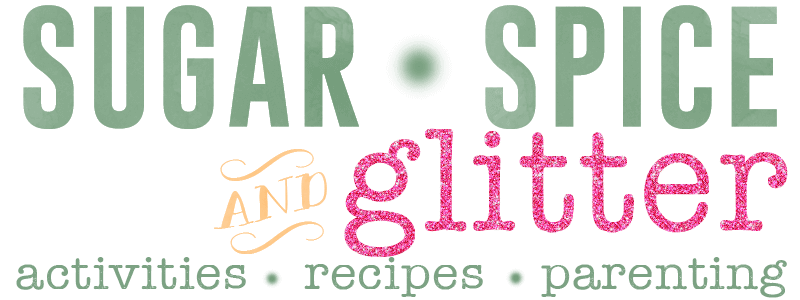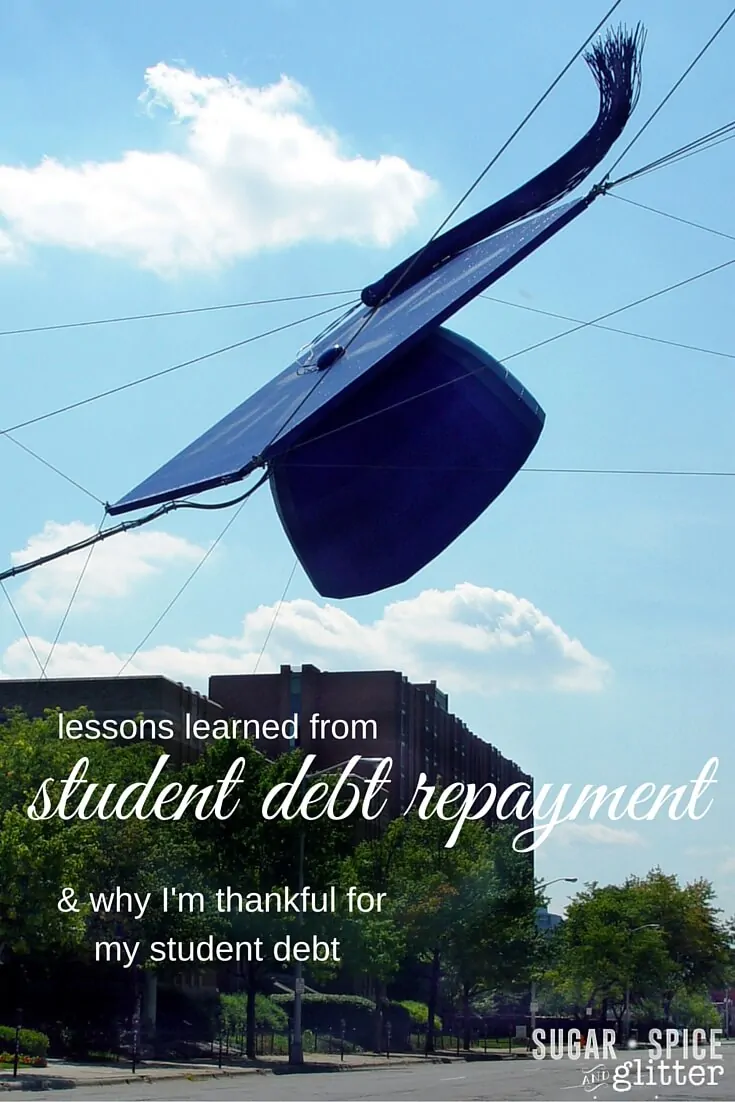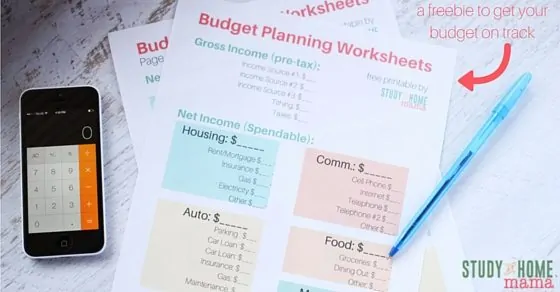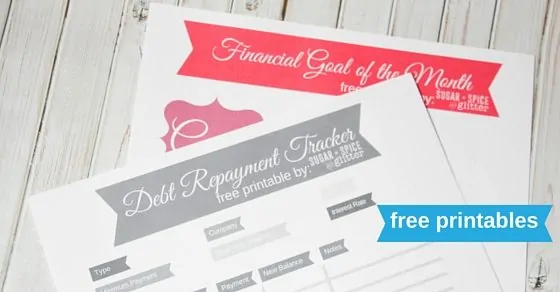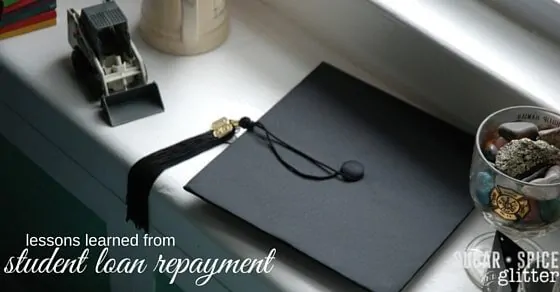Lessons Learned from Repaying Student Loans
Student loan repayment is a hot button issue and there are hundreds of posts out there with tips & tricks on how to avoid repaying your loans. This post is not one of them. This month’s Financially Savvy Friday post is about appreciating the opportunity my student loans provided me and the lessons I’ve learnt in repaying them. I am in better financial health for having had to repay my loans. I’m also sharing some awesome Debt Repayment printable for those who are also on the journey to being debt-free.
I am very thankful for having the opportunity to take out student loans, even if my loans came with high interest rates, annoying application processes, and weren’t very generous considering the cost of student living.
The fact is that even with the scholarships I received going into school with a 4.0 average and a heavy extra-curricular and sports resume, I wouldn’t have been able to afford to go without loans. My loans gave me the opportunity to design a future that was different from the one I was born into.
However, I didn’t always appreciate those student loans at the time and neither did my peers. Giving large student loans to teens and early adults is just as precarious as giving large credit card limits – some are going to be cautious and careful, and some are going to look at it like the won the jackpot.
My Attitude to Paying off Student Loans
It’s easy to look at student loan repayment as a hassle, as unfair, as overwhelming – especially if you didn’t end up working in the career that you trained for, or spent your student loans frivolously. Regardless of how we feel about our student loans, we entered into them as consenting (but perhaps unworldly) adults and they are our responsibility.
I’ll share the lessons I’ve learned about student loans and what I wish I had realized before I had taken and spent them below, but first, I’ll share how I look at those loans now.
I could waste my time resenting the monthly bill. I could be spending that time calculating how else I could use that $1200/month (which is just a little less than our housing expenses). But instead, I’m focusing on how I can pay those loans off faster. I’m looking for creative solutions to get to that clearing of being debt-free.
Can I save $25 on our grocery bill? Can I take on a freelance project or a weekend job to contribute an extra few hundred a month? Can I apply for repayment assistance, or apply for interest to be lowered?
Paying off my student loans has made me financially smarter and I truly think that I will be “better off” having encountered & overcome this financial obstacle.
Here’s how paying off my student loans has improved my financial perspective:
1. I respect money – and not just my own.
You know those people who if they paying for their own meal, they look for the cheapest item on the menu – but if someone else is paying, they eat like it’s their last meal? Those people lack a basic respect for money. I used to be one of them.
Now, I respect money. I respect the money I borrowed, even though it is long gone. I respect the system that allowed me to educate myself when I couldn’t have possibly paid for it all myself at the time – even if I didn’t always handle that opportunity (money) responsibly.
2. I budget my money, I say no to little expenses so I can afford the bigger ones.
Budgeting without the option to really remove or reduce certain expenses forces you to think creatively and be honest about your spending habits.
My weakness is grocery shopping. I am a total foodie and I love looking at all of the foods and thinking of the potential recipes I could create. It’s easy to justify add-ons in the grocery store because they aren’t always big-ticket items. But if I leave the cards at home and walk into the grocery store with $80 cash, knowing that has to feed 6 people for 7 days – I’m going to buy the store-brand ketchup, I’m going to go with the cheaper veggies or fruit options. I’m going to prioritize the essentials and make do. That doesn’t mean I’m sacrificing healthy choices – far from it – but maybe I’m going to bypass the $16 Costco bag of Honeycrisp apples (my favourites) when the Galas are $6 for the same quantity. Or I’m going to go with the bulk pack of tomatoes and give myself less choice than buying smaller packages of tomatoes and peppers for my breakfast veggies that week.
When I stain a dress, I look at dying it a dark colour instead of throwing it out. I make my own cleaning products. The little things add up in both directions. They can either eat away at your budget or extend your budget.
Check out my free budget printable worksheets here.
3. I appreciate my luxuries – no matter their size.
Now, just because I budget and am prioritizing debt repayment doesn’t mean we live a life devoid of luxury! But my definition of that has changed.
- A nice face wash replaces the luxury of facials, but it is still a luxury considering I could just use a bar of soap. How I treat the ritual of washing my face reflects that.
- Home movie nights complete with themed menus have replaced the boring dinner & a movie out.
- Good quality coffee that I can make at home is a luxury compared to bargain brands, but is still more budget-conscious than to-go coffees.
- Vacation is still a luxury – even if we’re saving money packing our own picnic lunches, or staying at student residences in the off-season. We have done weeks in Bermuda, Montreal, Chicago, and Toronto for less than $1000 each trip include transit there.
4. I consider debt repayment a count-down!
Thinking of repaying X-amount can be overwhelming. But crossing that number out and bringing it down, doing the count-down to ZERO debt is an exciting and empowering mind-shift. I cross that number out every month and write in the new number.
Just the thrill of seeing that number go down is motivation in itself, but I also give myself little challenges – pay off an extra $100 and I can treat myself to an afternoon at the beach, a Starbucks coffee and browse at the book store, an affordable but good bottle of wine and a movie night, etc. (I even made a little poster for these monthly challenges.)
5. I value myself, my time, and my work.
Working even harder now to pay my bills and repay that student loan really puts the few hours that I worked during university in perspective. While it was hard to find full-time work or coordinate two jobs around a school schedule, it would have been less work than what I do now. I routinely work 80 hour weeks from home and often still add on freelance projects on the weekends.
I’m not too good for hard work, but I’m also selective in what I work – working smart and hard. If hiring a babysitter for a couple hours on the weekend will allow me to accept a freelance gig that contributes to debt repayment, I’m going to do it. On the flip side, I’m not willing to spend any of my time couponing because the savings where I live are minimal (especially when I can use the Flipp app while in the check-out line or letting the kids hem and haw over which fruit they want to pick out that week).
Click here to read about how to use my free debt repayment printables & download your own copy.
Things to Know Before You Spend Student Loans
Here are some things that I wish I had realized before taking out student loans, or spending them on anything other than the bare necessities:
Student loans are loans against your future.
Student loans are loans against your future. After you graduate, you will want to move on and start your new life but you will be paying for your old life. Do you want to be working to pay off nights at the bar, or unneeded clothing? Anything you buy with student loan money is something you are going to be paying off for years to come, so think wisely.
You will not make the “average salary” in your field for a long time. Plan accordingly.
I cannot tell you how many friends I had in my “Ivy university” that truly believed they would be making $80,000 a year or more after graduation, or that they would only have to do a year at the entrance-level salary. Even if you luck out and land a $50,000/year job, a good portion of that is going to taxes (the average is $11,000), and the majority of the remainder will be eaten up by living expenses.
Even friends who were the top of their class and graduated from prestigious programs that held job fairs – the friends who were hired before graduation into top-tier financial firms, production companies, etc – they still weren’t left with a lot of truly disposable income after the expenses of moving and living in a big city, buying a professional wardrobe, etc. Most of them were only hired after doing unpaid or low-wage internships.
Are you treating your loan as an investment? How do you plan for it to pay off?
This is a tough one. I am all for living a life you love and making your passion your career. But, you need practical plans to make that work. If you want to study fine art, ensure that you are also taking courses that can translate into “the career to pay the bills” until your art can actually sustain you – like graphic design, or marketing.
Talk to people in your planned field to find out how to make yourself a competitive hire.
Loans are not income. Live within your means.
It’s easy to look at the loan in your bank account and think that you have that amount of money to spend, but keep in mind that you haven’t earned it yet, and any loan money you spend will still have to be earned and paid back.
Try to spend what you earn. Try to find scholarships and bursaries. Look for work opportunities. Try to cover as much of your expenses “outright” as you can. There’s something about working hard for your money that makes people a bit more careful in how they spend it.
Work while you’re studying. Work two jobs in the summer. Work.
I never understood why if I earned $5,000 in a year, my loans would be reduced by $5,000, and now I realize how smart that was! As much as I had to work more to end up with the same amount of money that year, I was working to end up with less debt – and more money in the long run.
I’ll be honest. It sucked to have to work so hard throughout university while the majority of my friends were getting a free ride from their parents (allowances, housing, option to live at home in the summer, not to mention the freedom of travel & free internships). I resented this, and I allowed that resentment to stop me from pushing myself to do better. Sure, I still needed to work to live and the 40-hour a week internships would have been a long-shot, but I could have interviewed and shown that I was a hard worker that could only do a 20-hour internship. I just assumed that wouldn’t be good enough and I didn’t apply.
Give yourself a break.
This might seem counter-intuitive, but people need breaks. Your brain and body will sabotage you to get a break if you don’t give yourself enough “space.” You will be more productive, happier, and less prone to burn-out (the most unproductive thing ever) if you give yourself needed breaks. Schedule them if needed.
Also, sleep and eat well. You may not eat as well as you did at your parent’s house in terms of luxury, but you have not earned that yet. Eat properly and regularly. And hydrate. Hydrate hydrate hydrate.
